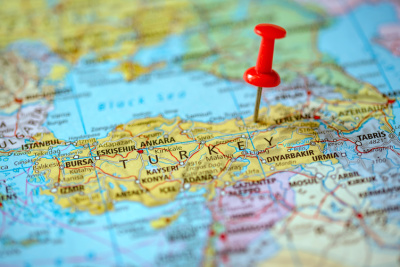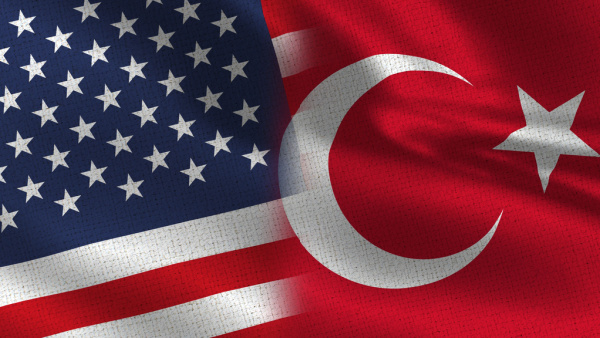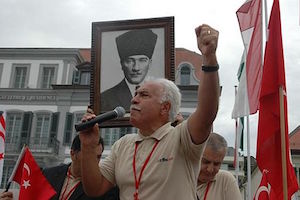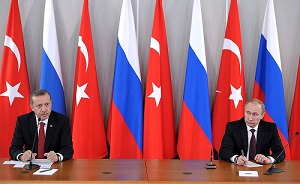The Reset of the Nation Alliance: Returning Turkey to the West
By Barçın Yinanç
March 9, 2022
The Nation Alliance reasserts Turkey’s place in the West and as a Western democracy. In case of victory, the Turkish opposition alliance will orchestrate a careful distancing from Russia and reset Turkey’s relations with its Western allies. What the main Turkish opposition alliance holds forth is a return to the decades-long principles of the Turkish republic that will be marking its centenary this year. These include, notably, the principle of non-interference in internal affairs of other nations. The opposition pledges to “put an end to practices based on domestic political calculations and ideological approaches in foreign policy.”

Allies or Adversaries? The Confidence Gap between the U.S. and Turkey Needs to be Addressed
By Barçın Yinanç
November 17, 2022
Washington’s response to Turkey’s foreign policy choices has been to look for other allies that are either at odds with Turkey, like Greece, or which confront it, as Kurdish groups in northern Syria do. This is a risky strategy. U.S. policy makers need to be cognizant that the more the confidence gap between Ankara and Washington persists, the more it will benefit Russia that is set to use it to advance its own interests.

A "Eurasian Turn" in Turkish Foreign Policy? Not Likely
By Toni Alaranta
January 31, 2018
No substantial “Eurasian turn” of Turkish foreign policy is likely – or at any rate likely to be lasting. However, the deterioration of the Turkish-Western relations has nonetheless helped bring about an unholy alliance of various “anti-Westernists,” secularist-nationalists and Islamists, which is anything but insignificant in terms of domestic politics. The regime has been bolstered, as it can now count on being supported by at least some secularist nationalists in the name of “anti-imperialism.”

Turkey and Russia: Aggrieved Nativism par excellence
by Suat Kınıklıoğlu
May 10, 2017
Turkey and Russia have recently both turned to an aggrieved nativism that delegitimizes democratic opposition. This nativism is nationalist, anti-elitist, protectionist, revanchist/irredentist, xenophobic and "macho". Despite three decades of post-Cold War transition both countries have failed to be at peace with themselves; have not been able to adjust to their neighboring regions and come to terms with their respective histories.

Turkey Is Not Going to Be “Normalized” Under the AKP’s leadership
By Toni Alaranta (vol. 8, no. 14 of the Turkey Analyst)
There is widespread expectation that “normalization” and democratic consolidation will follow the June 7 election, which deprived the ruling Justice and Development Party (AKP) of its majority. The talk about “normalization” and President Recep Tayyip Erdoğan becoming “isolated” presupposes that Turkey’s democratic travails emanate exclusively from Erdoğan’s power hunger, and that once this factor is eliminated, the AKP will once again become the “normalizing force” it allegedly was previously. However, “normalization” would mean abandoning not only Erdoğan but the very political narrative disseminated by the AKP during its years in power, and thus the mission of the party.





